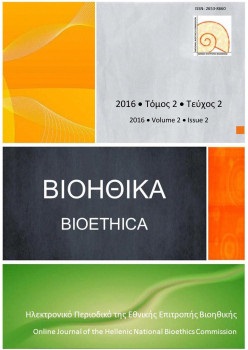Genetically engineered crops vs biodiversity? Scientific and philosophical challenges

Abstract
Regarding the issue of balance between environmental sustainability and the inherent ecological interventions of agricultural biotechnology, multiannual studies substantiate that loss of biodiversity, due to the use of GM crops, is globally less important than several other practices. Thus, what explains this diametrically extreme confrontation, from part of the scientific community? I presume, that the controversy is a philosophical one, and is expressed mainly by two contrasting materialistic approaches; the so called reductionist (or molecularist) view and the opposing holistic (or organismic) view, both of which, in their comparative analysis, prove, in my view, their incapability in definitely resolving such dilemmas.
The first, as an anthropocentric approach, seems unsuccessful in building any concept of ecosystem integrity on the basis of moral duty while the second, as a biocentric approach, does not take into consideration the effects in human populations, and provides limited guidance with respect to the environments in which agriculture has already replaced the natural order. Norton’s concept provides a new perspective, since it recognizes the human duty to conduct agriculture, in a manner that supports survival for the people on this planet, while simultaneously it maintains the ecological dynamics that sustain life. Based on Norton’s “weak anthropocentrism”, we can be easily led to the “convergence” of policies, through a “contextualized” hierarchy of moral choices for the issues of agricultural biotechnology.
Article Details
- How to Cite
-
Μυλωνά - Γιαννακάκου (Konstantina Mylona-Giannakakou) Κ. Π. (2016). Genetically engineered crops vs biodiversity? Scientific and philosophical challenges. Bioethica, 2(2), 5–18. https://doi.org/10.12681/bioeth.19778
- Section
- Original Articles
Authors who publish with this journal agree to the following terms:
- Authors retain copyright and grant the journal right of first publication with the work simultaneously licensed under a Creative Commons Attribution CC BY 4.0 License, which allows for immediate free access to the work and permits any user to read, download, copy, distribute, print, search, or link to the full texts of articles, crawl them for indexing, pass them as data to software, or use them for any other lawful purpose. Appropriate credit must be given by citing the author(s) and the original publication in this journal.
- Authors are able to enter into separate, additional contractual arrangements for the non-exclusive distribution of the journal's published version of the work (e.g. post it to an institutional repository or publish it in a book), with an acknowledgement of its initial publication in this journal.
We encourage authors to deposit their articles, as well as data underlying the publications, in institutional and/or other appropriate subject repositories.
Bioethica permits and encourages authors to archive the final publication pdf in institutional (e.g. the repository of the National Hellenic Research Foundation) or other appropriate subject repositories (e.g. SSOAR repository for social sciences), in compliance with institutional and/or funder open access policies, after publication in the BIOETHICA. Authors must provide bibliographic details that credit publication in the journal, as well as related funding details (when applicable).
Lists of institutional and other subject-based academic open access repositories can be found listed by country at the registry http://opendoar.org/countrylist.php
If your institution does not possess a repository you may deposit a copy of your paper at no cost with www.zenodo.org , the repository supported for open access research in the EU by the European Commission, through the project OpenAIRE (www.openaire.eu )


